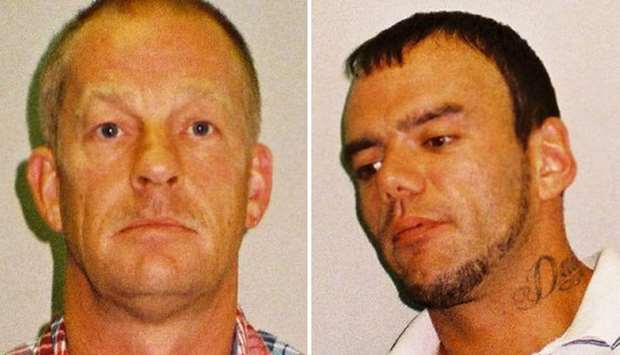Two British men were jailed Friday for stealing a valuable hoard of 1,100-year-old coins and jewellery they found with metal detectors -- much of which remains missing.
George Powell, 38, and Layton Davies, 51, failed to declare the find as required by law, and were sentenced to 10 years and eight-and-a-half years respectively.The hoard discovered in 2015 on farmland in Herefordshire, near the English-Welsh border, are believed to be Anglo Saxon items buried by a Viking around 878 or 879.
Aside from their value, estimated at between £3 million and £12 million (3.5-14 million euros, $3.9-$15.4 million), they have helped reveal a new aspect of English history.
Five of the 31 coins recovered are exceptionally rare, depicting King Alfred the Great of Wessex and a lesser known monarch, Ceolwulf II of Mercia, sitting together.
They were previously not known to have had an alliance, according to Gareth Williams, curator of early medieval coins at the British Museum.
"This is a find of national importance from a key moment in the unification of England. It comes just at the moment when the Vikings were attacking in a large way," he told the BBC.
The coins are believed to be only a fraction of a larger hoard of around 300, which was revealed in photographs on Davies' phone but were never found.
Other striking items recovered and now held at the British Museum include a gold ring, bars of silver and a fifth-century crystal sphere bound with gold.
A coin collector, Simon Wicks, 57, was given five years for helping conceal the crime, while a fourth co-conspirator, Paul Wells, 60, is awaiting sentencing.
Judge Nicholas Cartwright said the treasure had been taken not just from the landowner, who would have been entitled to a share of any proceeds alongside the finder, but also the nation.
"When treasure is found it belongs, from the moment of finding, to the nation," he told the defendants as he passed sentence at Worcester Crown Court.

